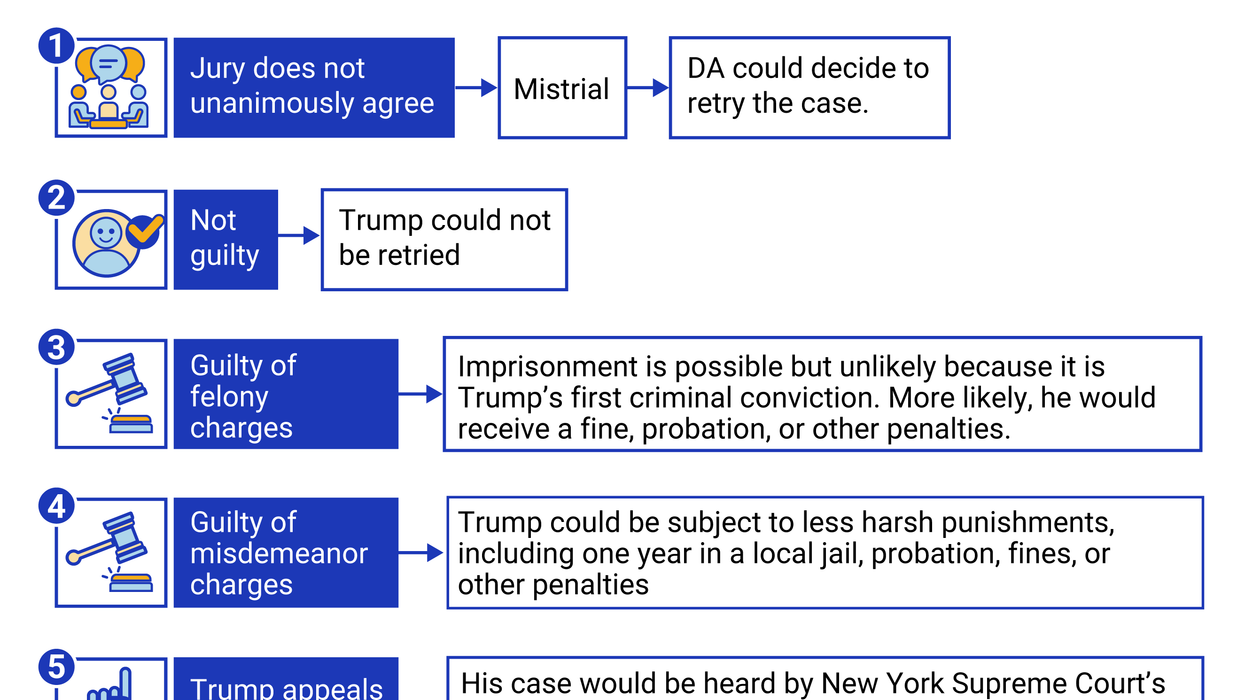Graphic Truth
Graphic Truth: How will Trump's hush money trial end?
After weeks of witness testimony in what is likely the only criminal case Donald Trump will face before November’s election, the jury heard closing arguments in the New York hush money trial on Tuesday.
May 28, 2024

